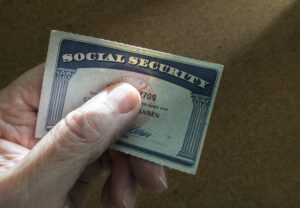Identity theft is a major issue for people of all ages. However, elderly people are especially at risk, as one in ten Americans who are 65 or older and live at home will become victims of elder fraud. Understanding how to prevent identity theft is essential in keeping your assets well protected at all times.
Why Seniors Are More Likely to Experience Identity Theft
Many seniors tend to have greater net worth and access to more capital compared to younger people. All of these assets make elderly people a prime target for criminals. Seniors are also usually more trusting and are not as tech-savvy compared to the younger generation. Cognitive decline can also play a role in elderly identity theft. Keeping all of these factors in mind is important in stopping identity theft against seniors.
Elder Fraud and Types of Identity Theft
Elderly identity theft is often wide-ranging, as these criminals are constantly developing more sophisticated scams. Types of identity theft include phishing scams and robocalls. They usually try to get you to “act now” by requiring you to provide personal information for receiving a special offer. Social security identity theft is another common scam, as it’s often conducted through email phishing scams. Romance scams also continue to be more widespread, as scammers target seniors on dating websites. Staying aware of all these different scams isn’t easy, but it’s a necessity for identity theft protection.
How to Prevent Identity Theft
Stopping identity theft isn’t always possible due to the almost countless number of scams. However, keeping a few things in the back of your mind can help you reduce the chance of becoming the victim of identity theft. For example, it’s never a good idea to click on suspicious links or open emails from unknown senders. Using a complex password and enabling multi-factor authentication is also critical in keeping your online accounts safe from identity theft.
Purchasing identity theft protection is another way to give you an added layer of protection against these schemes. Identity theft protection companies will immediately notify you of any suspicious activity and can help reimburse any stolen funds. Using cash instead of paying with a credit card can also reduce your chance of identity theft. Only answering phone calls from people you know is another way to avoid elderly identity theft.
Choosing to opt-out of receiving calls from telemarketers is also helpful in reducing the number of unwanted phone calls. You can easily add your home or mobile number to the National Do Not Call Registry. You can also block commercial solicitations by mail and prevent unsolicited credit card offers. A legitimate organization won’t ask for your personal information, whether it’s your social security number, bank account information, or credit card number.
Keep Educating Yourself
Elderly identity theft continues to evolve at a rapid rate. Staying up to date with these schemes isn’t always an easy process. Reaching out to a trusted family member is important if you are ever unsure about an offer. However, it’s crucial to only reach out to people you trust, as a family member commits more than 90% of elder fraud
Keeping watch over your finances is essential in identifying any unusual activity on your account. It’s always a good idea to look at your credit card statements and your bank account for any additional transactions. Reviewing your credit report each year is also crucial in staying proactive against identity theft.
Going paperless on your financial accounts isn’t only beneficial to the environment, as it can also reduce the chance of identity theft. Shredding paperwork with any sensitive information is also important in keeping these documents out of the hands of identity thieves. Keeping critical documents locked inside a file cabinet is a good idea, whether it’s your social security card, medical insurance information, or financial records.
What to Do if You, or Someone You Know, Are the Victim of Identity Theft
Identity theft can still happen to anyone even if you take all of the additional steps to keep your information secure. If you know you are the victim of identity theft, it’s important to report it immediately by visiting identitytheft.gov. Once reported, the FTC will create an identity theft case and give an affidavit, which allows you to file an official report with your local police department. Reaching out to the IRS is also essential if you believe that your Social Security number is stolen. You will need to contact your Social Security Administration office to receive a replacement.
Protect Your Client’s Personal Information during a Life Settlement
Medical records, financial information, social security numbers, and everything else you thought remains private during a life settlement, well it doesn’t. When you work with a life settlement broker, all of your client’s private information is emailed or posted on sites that allow it to be reviewed and shared with provider companies, medical review companies and often the investors. Often, this personal information can take on a life of it’s own and potentially play a part in identity theft. At PolicyAppraisal.com – We ensure that you avoid losing control of your client’s private information. It’s simple. We don’t require this information to secure a current and market value for you to share. We stop information sharing at us.
Identity theft is a major issue facing seniors. Criminals will continue to find even more ways to trick seniors into giving out personal information. Staying proactive by taking these additional steps can play a key role in keeping your information safe and preventing identity theft.































































